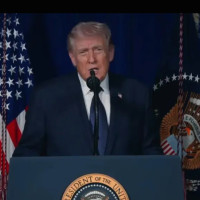- Tuesday, 3 March 2026
Clean energy could create millions of tons of waste in India
Kenchanahalli, India, Nov. 16: On the edges of a dense forest in southern India, six women in a small garage are busy stitching cloth bags, pants, hospital gowns and office uniforms with automated sewing machines.
About four years ago, power cuts constantly interrupted their work. Heavy rain disrupted transmission lines and air conditioners pumping in extreme heat exhausted the grid. But now a small black box in a corner of the garage, not much larger than an office printer, keeps their operations running. The battery pack, made from used electric vehicle batteries, keeps their sewing machines and lights on even when the main power is off.
While the group is successful, initiatives like it in India are still few and far between. As the country gets more electric vehicles, solar panels and wind turbines, all aimed at reducing the country's dependency on planet-warming fossil fuels, energy experts say that India will need to find ways to repurpose the batteries, panels and blades at the end of their lifespans or risk creating millions of tons of waste. If the country comes up with a comprehensive strategy to recycle components, it would both reduce waste and lead to fewer imports of the critical minerals needed for clean power in the future.
Currently, many panels, batteries and other clean energy parts end up in landfills. But others are processed by unlicensed waste recyclers, and some newer businesses and organizations are coming up with ways to recycle the valuable components.
The six tailors in Kenchanahalli say their lives have completely changed since the battery smoothed over power cuts.
Gauri, 32, said the steady income from the tailoring work has helped build a new home for her and her three children. She said it has also brought her more independence.
“Earlier, my husband was not happy about me working long hours or going to nearby towns to get tailoring orders," she said. “However, after seeing how much I was earning, he has taken a step back. It’s not only me, this job has changed everything for all the women in this room.”
The lithium-ion batteries can provide backup power for up to six hours. They were provided by battery refurbishing and energy storage company Nunam and set up at the campus of the Swami Vivekananda Youth Movement, a nongovernmental organization that works to help poor and In digenous communities in remote regions of Karnataka.
These relatively small electricity needs are perfect ways to reuse electric vehicle batteries, said Prithvi Raj Narendra, an engineer at Nunam. “The way EVs use these batteries is like asking it to run. Using it to power small machines and streetlights is like asking it to walk,” he said.
In the four years since the tailoring operation was set up, Nunam's orders have exponentially increased. Their two dozen employees in Bengaluru's electronic city neighbourhood are busier than ever designing and packaging battery packs from used EV batteries from cars and three-wheelers. (AP)
















